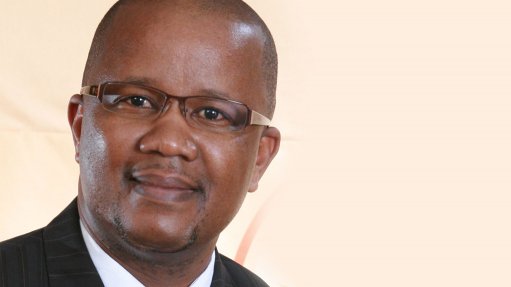
Andrew Louw
The opposition in the Northern Cape Provincial Legislature jointly
rejects the second adjustment appropriation bill 2014/15 on the basis
that it promotes a lack of accountability. The DA, COPE and EFF are of
the view that the portfolio committees must call the department of
Transport, Safety & Liaison as well as NCEDA as a matter of extreme
urgency to account for the spending of the funds. We must have a
report from both by the end of the month and the provincial Treasury
must intervene to prevent similar occurrences in the future.
We appreciate that we were given the opportunity to engage in the
portfolio committee on Finance. However, we want to repeat what we
said in the committee meeting on record so that the public knows that
we do not condone any wrongdoing.
Firstly, as it relates to the department of Transport, Safety &
Liaison: An amount of R60 million had been transferred, purportedly
for road safety education. The first red flag is that since 2011/12,
the sub-programme Road Safety Education under Transport Regulation has
received a budget of two to three million. For the 2015/16 financial
year, the Road Safety Education sub-programme is set to receive R2.7
million. Why is it necessary to increase this sub-programme’s
allocation twentyfold?
The second flag is the rate against which the department spent its
funds. The funds were allocated with the condition that unspent funds
would have to be surrendered on the 31st of March 2015.The R60 million
was transferred in batches, with the first batch of R35 million
received in August 2014. So why is the R60 million left out of the
first adjustment appropriation bill? The first adjustment
appropriation bill, tabled in November 2014, only makes reference to
R5.5 million, the bulk of which was approved for learner transport.
Secondly, as it relates to NCEDA: An amount of R5.7 million has been
transferred to accelerate the development of the Special Economic
Zones. As it stands, NCEDA has one board member and no supply chain
management unit. The chief executive officer of NCEDA is the
accounting authority, subject to the control of the board. If there is
only one member, the chairperson, there really is no board to speak of
and the board cannot exercise control over the chief executive
officer.
In the absence of a supply chain management unit, goods and services
are procured in a way which openly flouts the Public Finance
Management Act and Treasury Regulations 16A6. In a report tabled on
the 3rd of March 2015, NCEDA admitted that a contract valued at
approximately R600 000 had been awarded at the sole discretion of the
accounting officer. This is in direct contravention of Treasury
Regulation 16A6, which clearly states that goods and services must be
procured either by way of inviting competitive quotations or through a
bid committee. Public funds cannot be used to buy anything on the say
so of one person alone.
Treasury knows that if it transfer funds to NCEDA, goods and services
will be procured in a way that is inconsistent with laws and
regulations. How can it be allowed?
Yesterday in the Portfolio Committee meeting on Finance, Treasury put
forth the view that they are the conduit through which funds flows
into the province and that the ultimate accountability rests with
departments and entities. This is just a half-truth.
We are of the view that Treasury must own up to its responsibilities
in terms of section 18 of the Public Finance Management Act. Section
18(1) and (c) specifically states that Treasury must exercise control
over the implementation of the provincial budget. Section 18(1)(c)
goes a step further and states that Treasury must “enforce”
transparent, efficient management.
Treasury has an oversight responsibility that it cannot shirk. It
cannot exonerate itself of all responsibility, pay over funds and
shrug off any questions as to how it is spent. The Public Finance
Management Act is clear on what is expected of Treasury and we call on
Treasury to be serious about its role.
For the sake of accountability, we will not let this issue rest.
Issued by DA